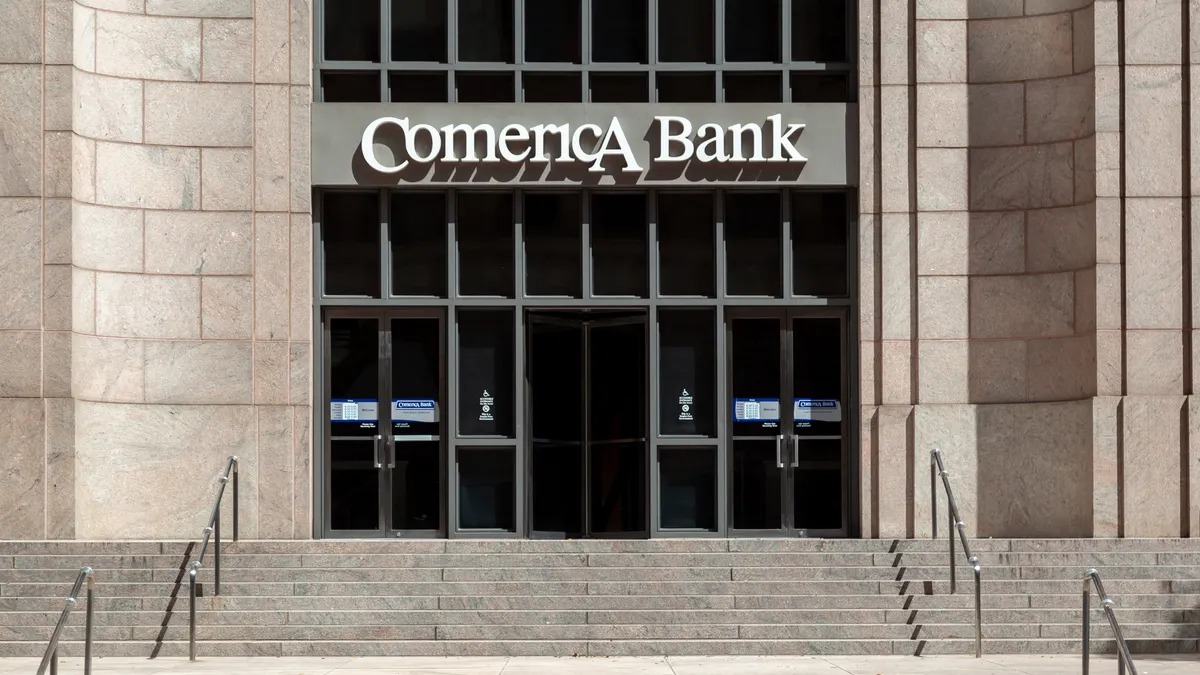Community banks in Pittsburgh already had to deal with hometown heavyweight PNC. Now two more banking behemoths have entered the crowded retail market.
Bank of America, the second-largest bank in the U.S. by assets, broached the Steel City in September 2018. By June 30, 2020, the Charlotte, North Carolina-based bank had climbed to No. 16 in deposit market share in the Pittsburgh metropolitan statistical area, according to the Federal Deposit Insurance Corp. (FDIC).
The nation's largest bank, JPMorgan Chase, opened its first Pittsburgh branch last October and recently cut the ribbon on its fourth branch in the city. More offices are on the drawing board.
According to the FDIC's June 30 report, 50 financial institutions are competing in the Pittsburgh market for more than $187 billion in deposits. PNC is still on top with a nearly 44% market share, but the bank held about 49% five years ago.
For decades, the presence of PNC kept the large national banks away, said Brian Kleinhanzl, who covers Bank of America and JPMorgan for Keefe, Bruyette & Woods. Historically, big banks lack the desire to compete in the home markets of larger competitors like PNC in Pittsburgh and U.S. Bank in Minneapolis, Kleinhanzl said.
"They felt like they were better able to compete in other markets that were more open," he said.
On top of that, JPMorgan was restricted from opening new branches for a time. "Now they feel like with what they have in terms of a national footprint, they can compete head-up in any market," he said.
Kleinhanzl said both JPMorgan and Bank of America need organic growth because of their inability to swell through mergers and acquisitions, and they will use their national recognition to compete head-to-head with anyone, anywhere.
Bank of America seems happy in Pittsburgh thus far, and customer acquisition has been strong because of the existing presence of Merrill Lynch, along with the company's credit card offerings, he said.
KBW analyst Brian Klock said PNC is expanding nationally into markets including Dallas, Houston and Boston, where the universal banks have a large share. PNC can disrupt those markets and find good growth, he said.
The larger banks are trying to do the same in Pittsburgh, but PNC believes it can protect its market share through core customer relationships and its ability to compete on the commercial side, Klock said.
Bring on the competition
Several community banks in the Pittsburgh market said they welcome the added competition.
The $443 million-asset Mars Bank, headquartered in the northern Pittsburgh suburb that bears the red planet's name, operates five branches in the market. One is a stone's throw from a JPMorgan branch site that is under construction in Cranberry Township.
Jim Dionise, Mars Bank's CEO, said both Bank of America and JPMorgan are formidable competitors that had lenders in the market long before the branches were built. "But the physical presence makes them much more visible," he said.
Dionise said Mars Bank is focused on developing personal relationships with clients and believes it will continue to maintain the relationships it has built over the years. The only times those larger banks' names have been brought up by clients were in conversations about Paycheck Protection Program loans (PPP), he said, adding those customers felt like they were getting lost in the shuffle with the bigger banks.
Kleinhanzl said Bank of America and JPMorgan will counter their local push by providing a more complete product suite including credit cards and wealth management — products that the smaller players don't offer.
Dionise conceded Bank of America's online banking platform "might be a little bit more slick than what we have to offer," but he said Mars offers quality functionality in its mobile and online products.
Still, the bank is constantly looking for ways to upgrade those offerings to attract younger, tech-savvy clients, he said.
No refuge
The $1.6 billion-asset NexTier Bank ranks 12th in deposit market share through 30 branches scattered across western Pennsylvania. The bank's CFO, Mark DeBiasio, said NexTier is "extremely well-equipped" to compete against larger national banks.
"We have the capability to offer customers all of the financial solutions that they need, and we provide consistently better service. We know our customers, and we live in the same towns and neighborhoods that they do," he said.
DeBiasio said there has not been any noticeable impact to NexTier's lending portfolio since the two national banks moved in.
Michael Jamesson, a principal at Jamesson Associates, a Scottsville, New York-based bank consulting firm, said he has long believed retail is a mass-market business that will eventually be won by digital delivery options rather than "high touch."
The retail side of the market may not be dependent on a physical invasion of a geographic area as more accounts are being opened online and among companies that have no physical presence there in a given area, he said.
"On the business side, I believe that smaller institutions can theoretically compete," he said. "But if the big banks can put [artificial intelligence] into use and cut costs, that market may not offer the refuge it has in the past."

















